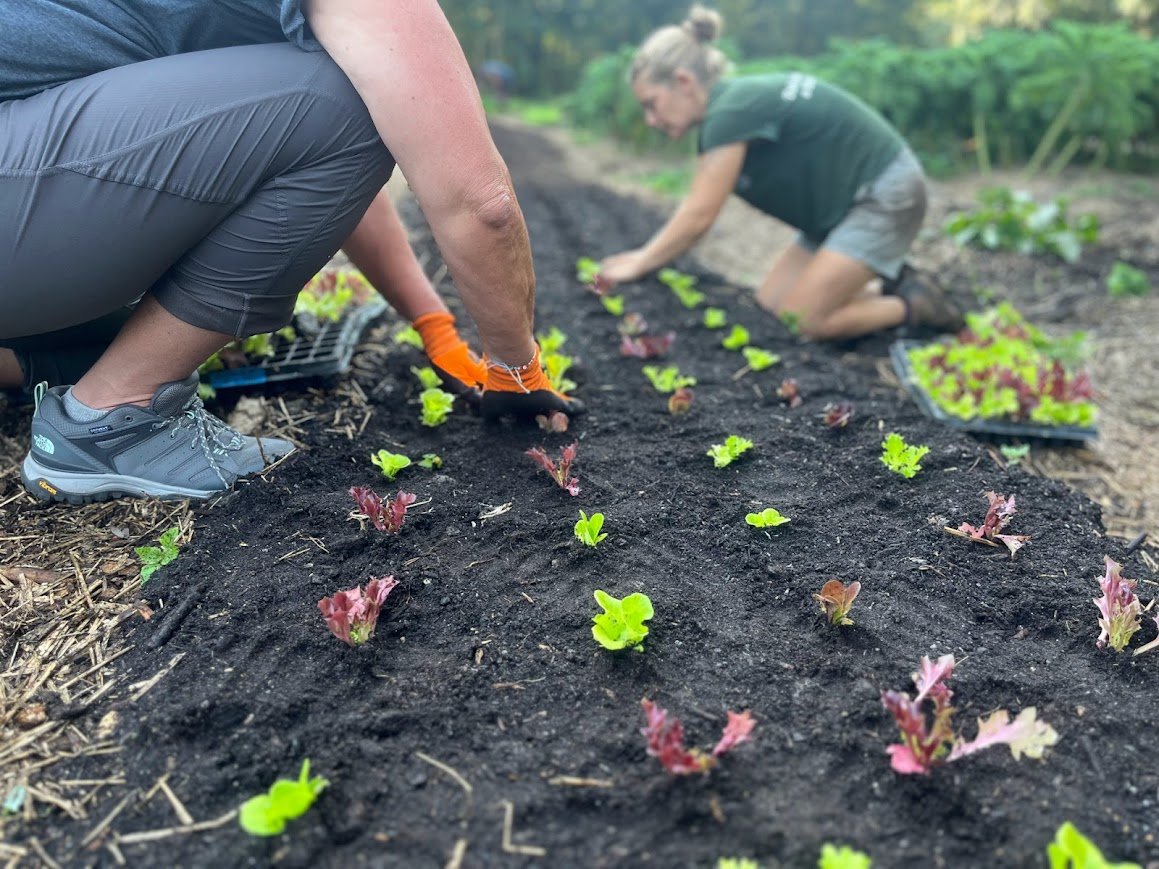Fresh Roots Farming Program
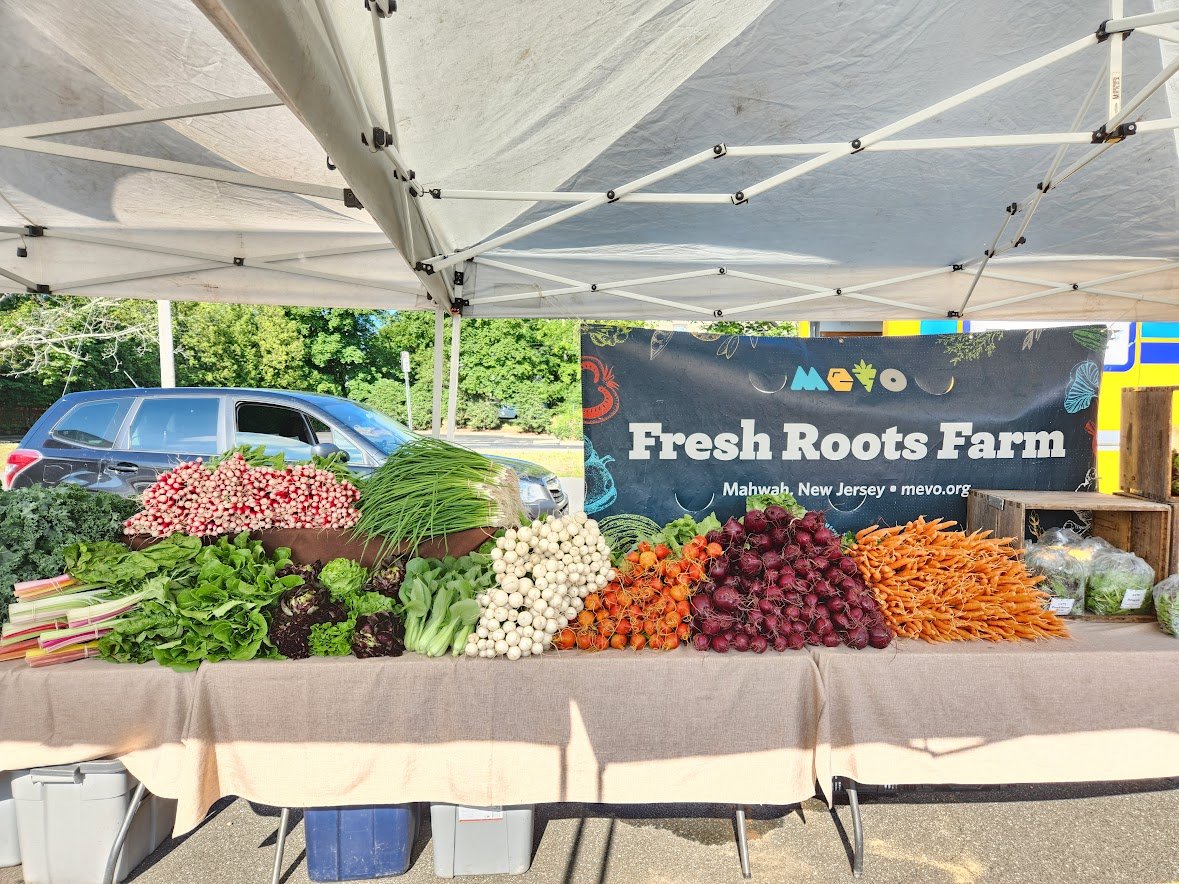



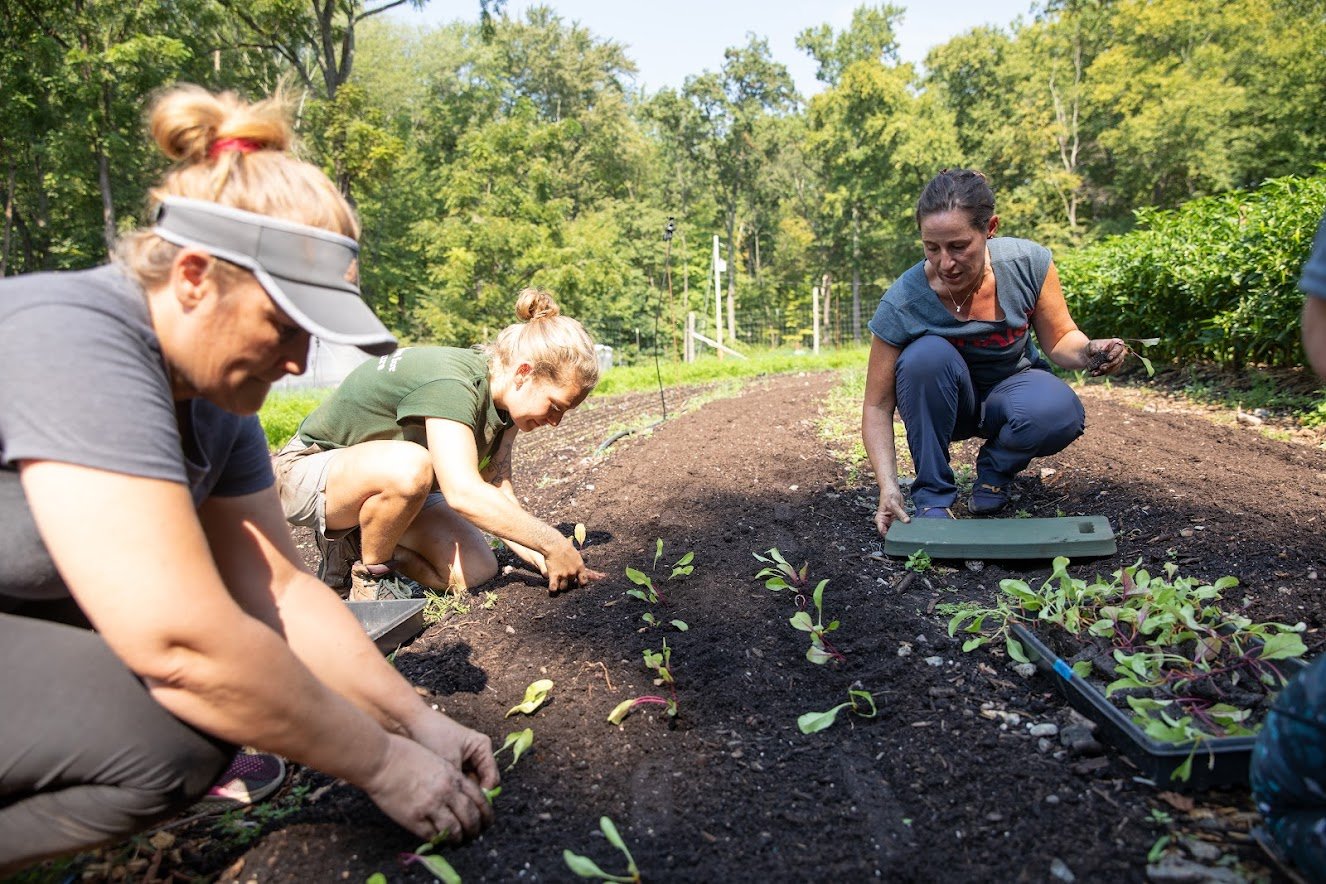




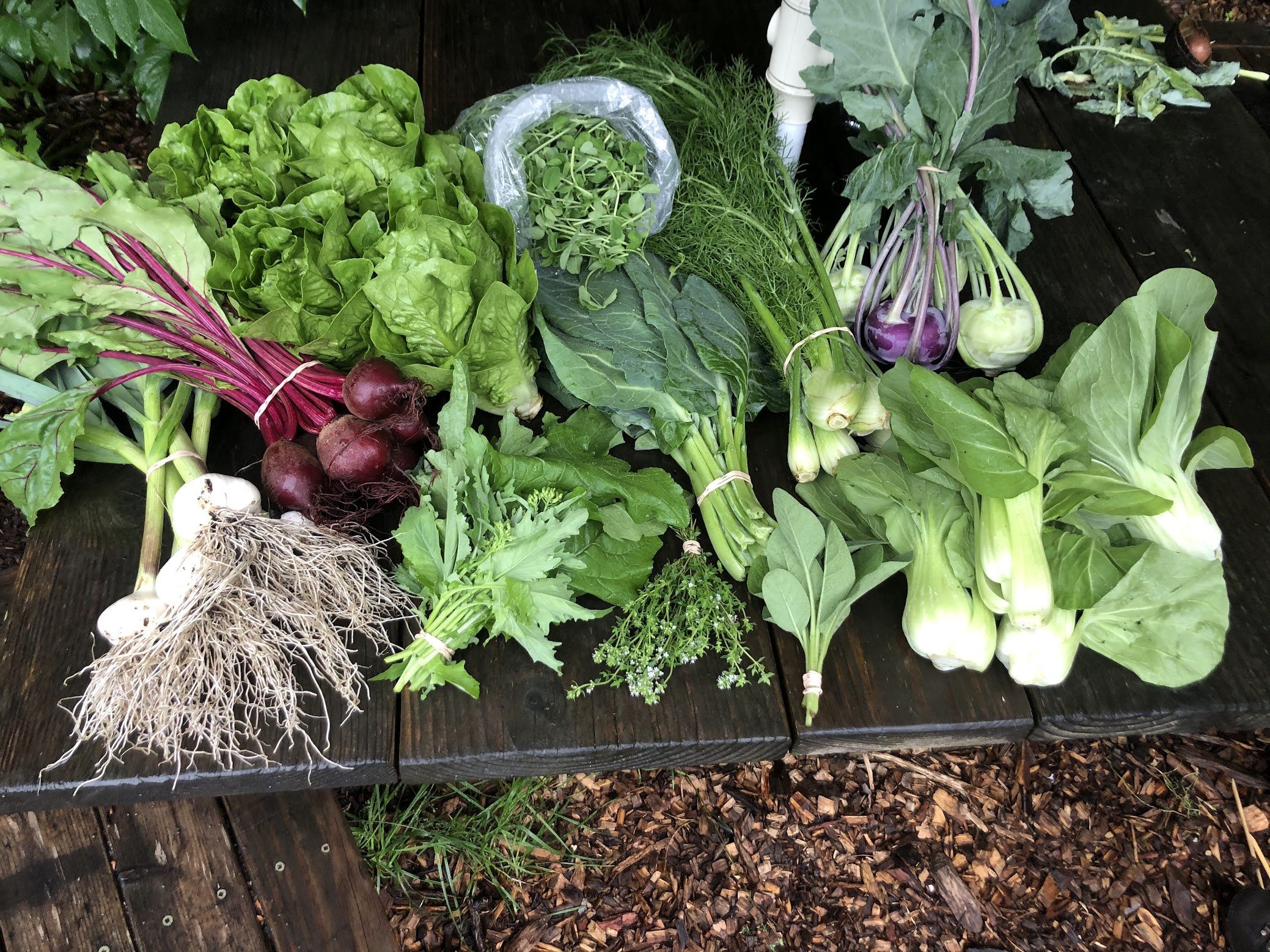
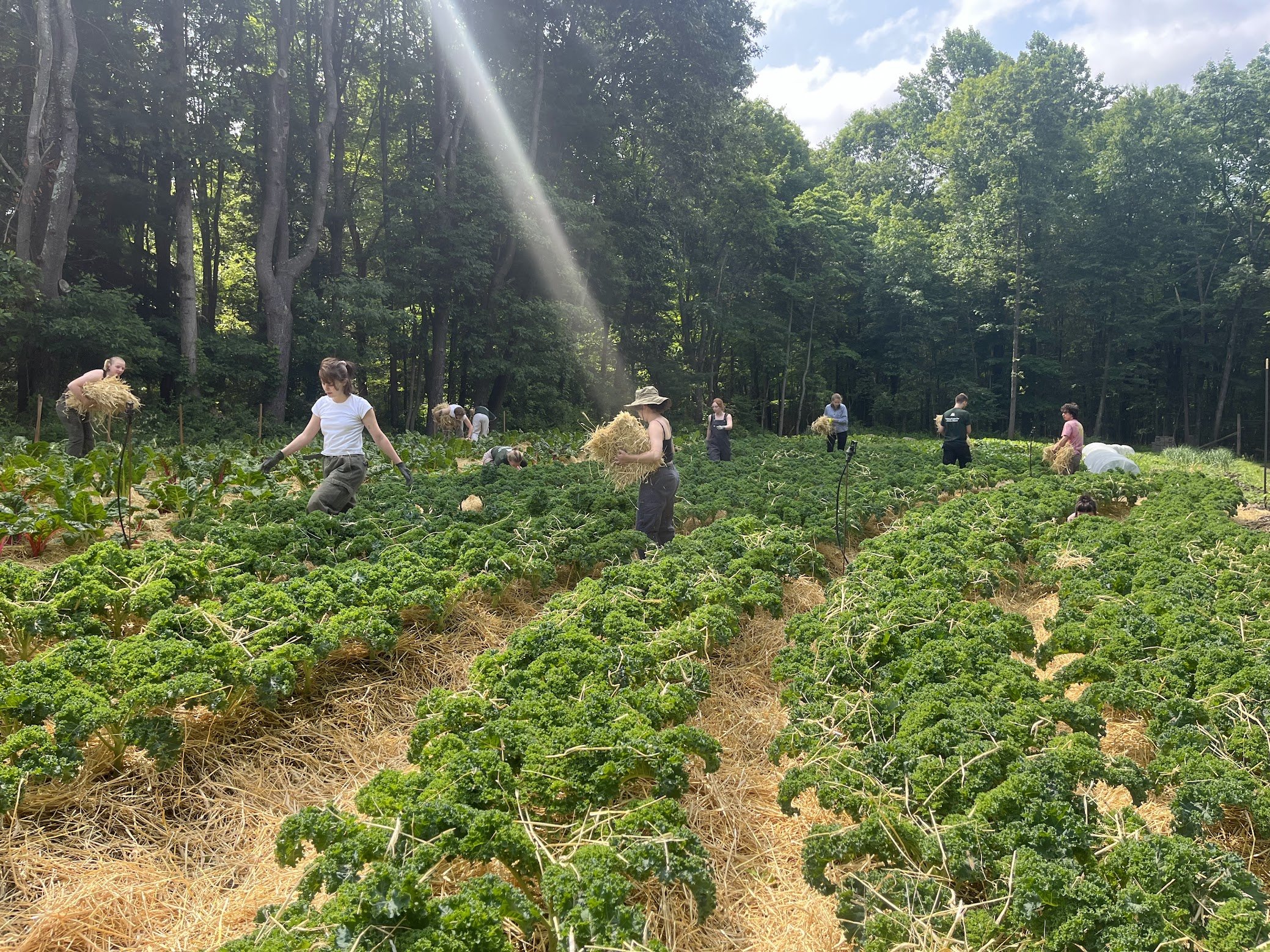
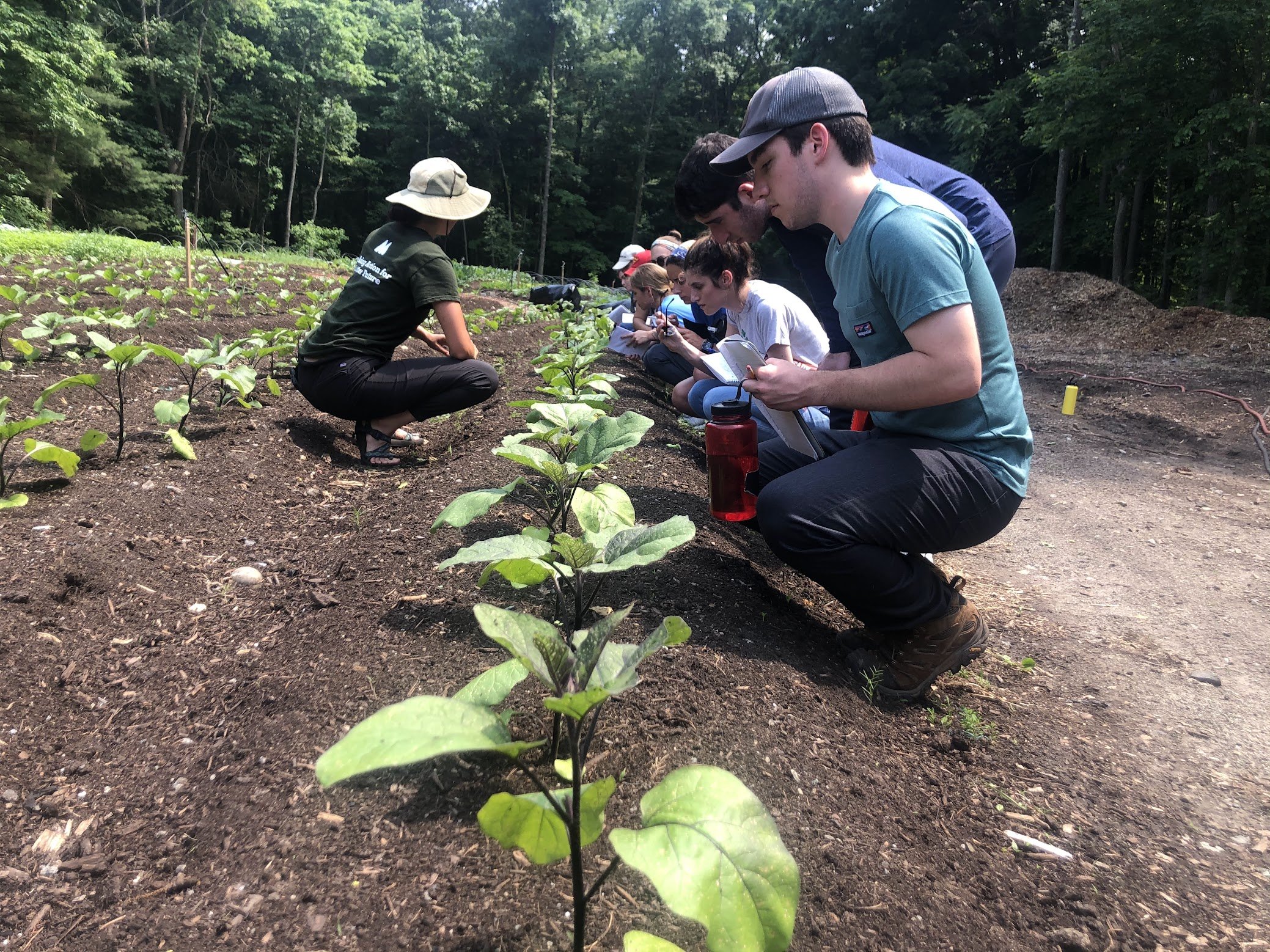
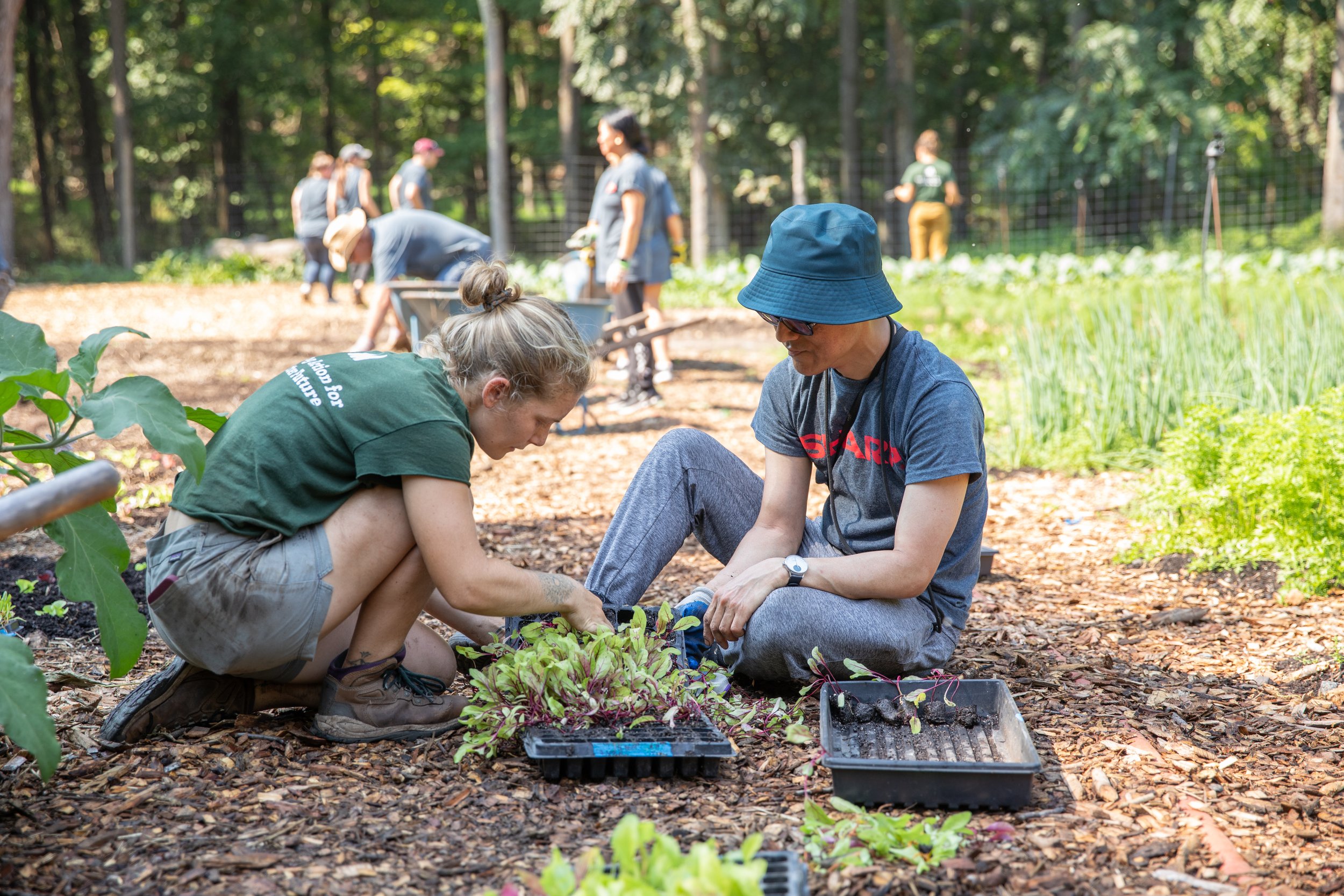














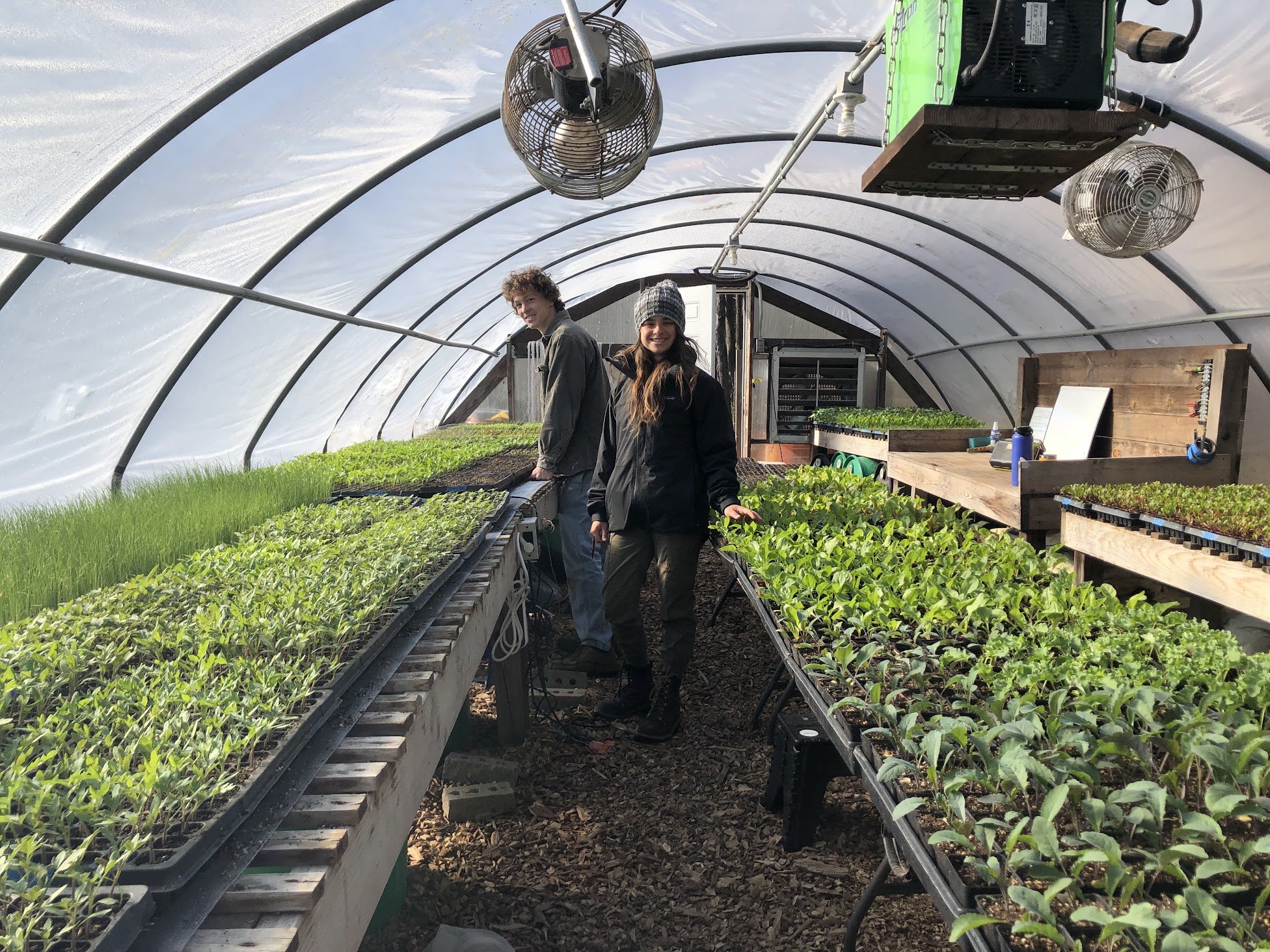

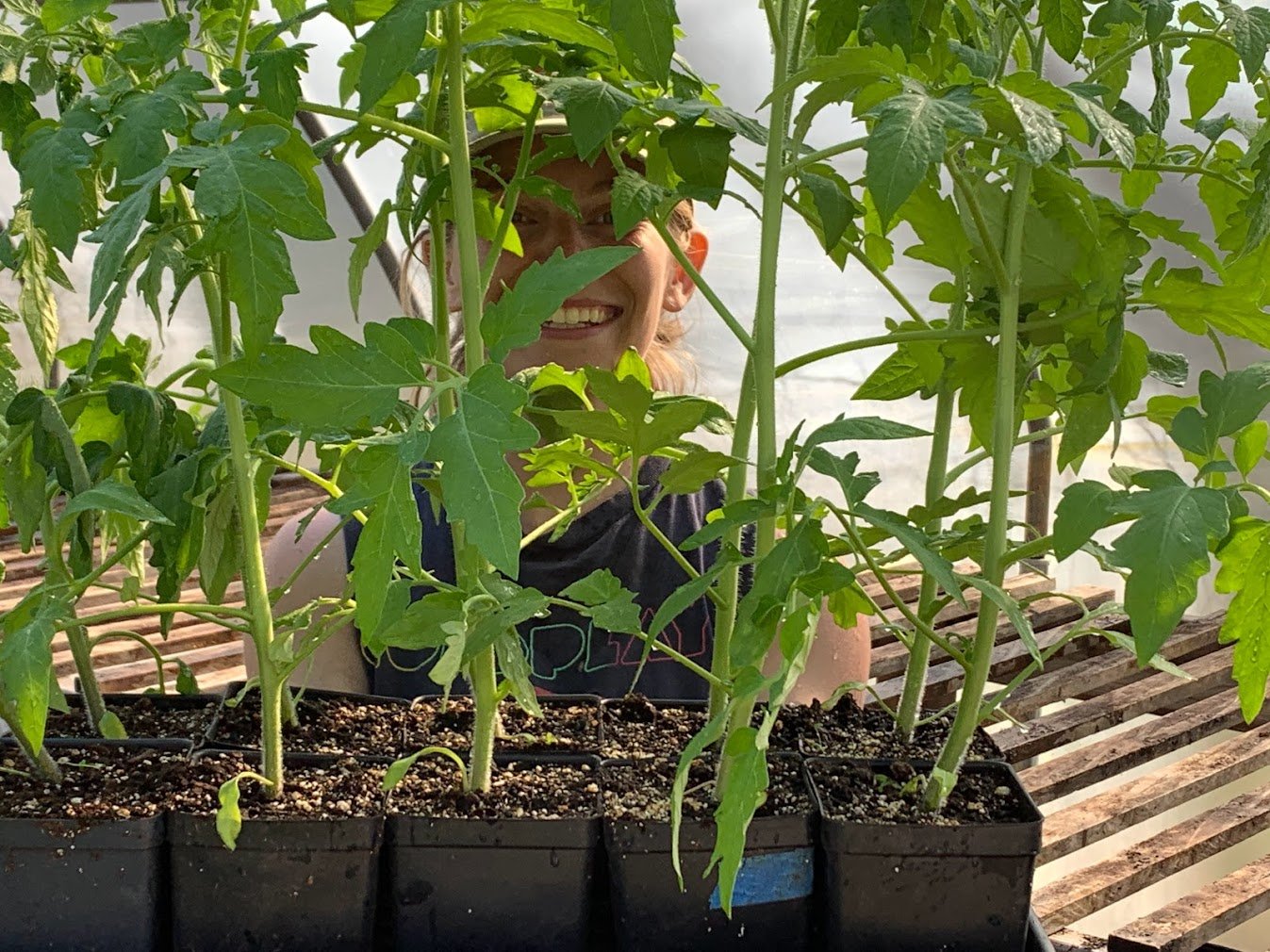
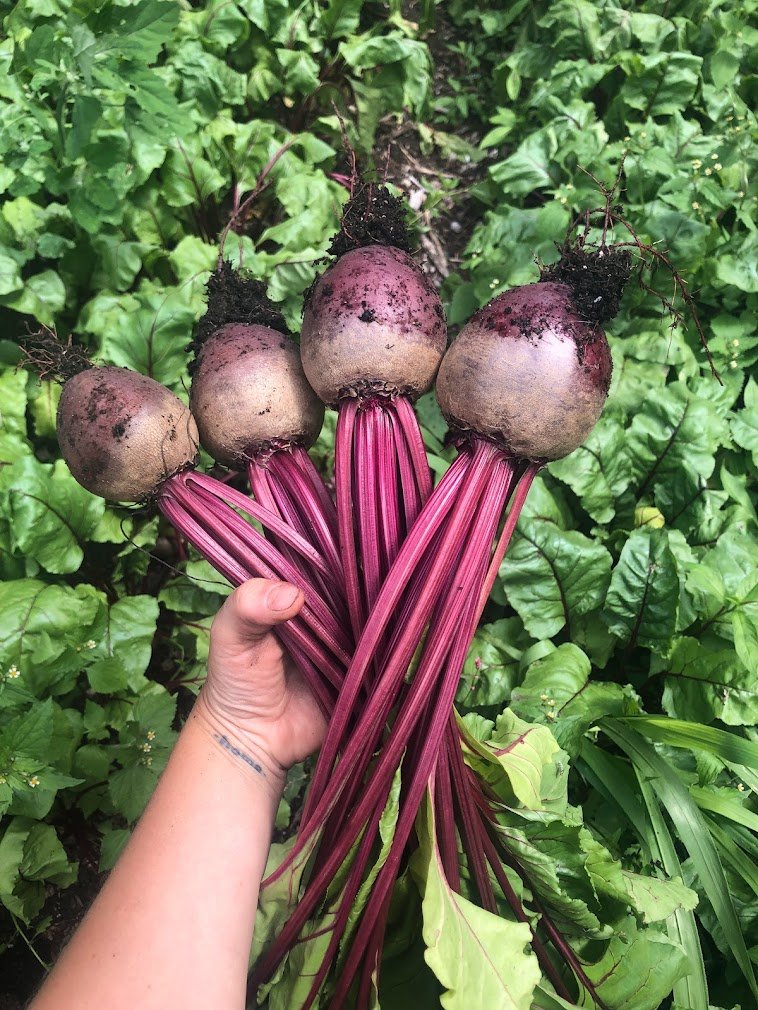

Farming for Environmental Change
Through the Fresh Roots Farming Program, we are striving to make a positive environmental change via regenerative farming practices, hands-on education, and building a community around the shared stewardship of our earth through our volunteer and internship programs. Currently, the Fresh Roots Farming Program is the core effort of our organization. The demand for education around farming, gardening, and fresh and nutritious food is at an all-time high, and we’re here to meet that demand.
The produce from our farms goes to our annual Community-Supported Agriculture (CSA) program, a few local restaurants, and the Ramsey Farmer’s Market. At this time, we do not sell directly from the farm.
Our Growing Practices
-
Market Gardening is a style of farming used widely around the world and the United States. Its basic tenets include: farming on five acres or less with mostly hand tools, growing organically on 30-inch raised beds, and growing bio-intensively in polycultures. We place plants close together and grow many crops at one time in our fields (around 15-20 types of vegetables) as opposed to one, which is called a monoculture. By growing directly for our markets, we are able to get know our customers directly.
-
Permaculture, or permanent agriculture, was developed by Bill Mollison and David Holmgren in the 1970s and encompasses a set of principles that suggests ways to live more in sync with the earth and each other. Unlike many growing systems, the earthworks that go into creating growing spaces in permaculture are meant to be permanent; gardens and fields are rarely tilled and growing beds are used year after year. Permaculture revolves around a set of principles that encourages individuals to create growing systems that align with the natural ecosystems in their area. Some permaculture principles include: Use Small and Slow Solutions, Creatively Use and Respond to Change, and Catch and Store Energy. When we design our farms and interact with them, we keep the principles in mind to guide our work and decisions.
-
In order to maintain and work toward optimal soil health, we do not till our growing spaces. Tilling disrupts the structure of soil and over time causes topsoil loss and soil compaction. Instead, we use hand tools like the tilther, developed by Eliot Coleman, and the broad fork, an ancient farming tool to aerate our soil and prepare beds for planting.
-
Market Gardners and permaculturalists are known for growing a diverse amount of fruits, vegetables, and herbs on small plots of land. They do that through bio-intensive growing. At our farms, this means spacing our plants close together, weeding often, and turning our beds over quickly. These practices allow us to get the most use out of our smaller fields. It also ensures that we keep a close eye on our plants: Intensive spacing means intensive cultivation. As we weed our fields, scout for pests, or harvest, we are able to closely observe our crops and their health.
Fresh Roots Farm (since 2015)
MEVO’s Fresh Roots Farm is a two-acre community-built educational farm located in the Campgaw Mountain Reservation in Mahwah, NJ. Fresh Roots Farm is a project in partnership with the County of Bergen Department of Parks. The farm was jointly developed by Bergen County, Bergen County Executive James J. Tedesco, III, and MEVO to be a hands-on, experiential sustainability center in 2015. The unique nature of our farm derives from its shared possession by the government and our not-for-profit organization, and from its community-driven volunteer efforts. Thanks to the hard work of our volunteers, Fresh Roots Farm has become a productive agricultural operation where nutritious, organic fruits and vegetables are cultivated on one-acre. In addition to our produce fields, the farm harbors a food forest, a compost operation, and a seedling nursery. The success of Fresh Roots Farm, within its unique governmental partnership, makes it a tangible model for replication throughout the state and country.
Lovewell Farm (2017-2025)
We farmed at Lovewell Farm for eight years thanks to the generosity of the landowners before the plot was sold for re-development. The plot has a long history of being farmed and was originally part of the Sidorsky Family Farm as well as a community garden. In its later years, a prior land owner used it as a leaf drop-off, which meant that we farmed on a giant pile of compost! When MEVO began farming at Lovewell Farm, it was covered in invasive weeds and rubble from past farming operations. We have since cleaned up the space, built a deer fence, and built out four field blocks with the help of volunteers. In addition to growing vegetables at Lovewell Farm, we have producing Asian pear and peach trees after years of cultivation. Lovewell Farm was an extension of the Fresh Roots Farm and we revived the land into a productive organic growing space using the principles of market gardening, permaculture, bio-intensive growing, and low-till practices.

